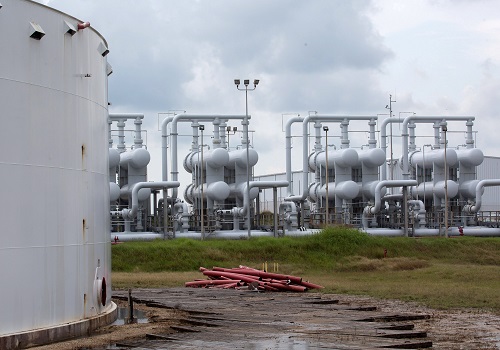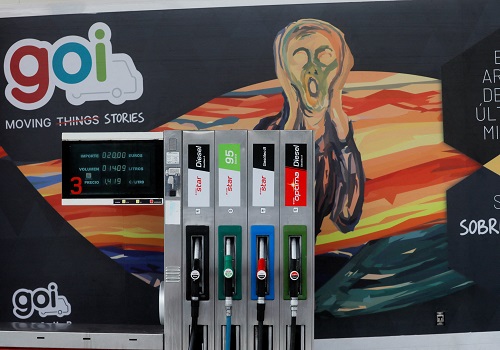Oil hits 6-week high on fears of U.S. supply disruptions from storm Nicholas

Follow us Now on Telegram ! Get daily 10 - 12 important updates on Business, Finance and Investment. Join our Telegram Channel
TOKYO - Oil prices hit a six-week high on Tuesday on concerns that another storm could affect output in Texas this week even as the U.S. industry struggles to return to normal production levels after Hurricane Ida wreaked havoc on the Gulf Coast.
Oil prices rallied for a third straight day, with Brent crude hitting the highest since Aug. 2 earlier in the session.
Brent crude was up 40 cents, or 0.5%, at $73.91 a barrel at 0444 GTM, having risen as high as $74.08 earlier.
U.S. West Texas Intermediate (WTI) crude also climbed 45 cents, or 0.6%, to $70.90 a barrel, having risen as far as $71.05 earlier -- its highest since Aug. 3.
Brent gained 0.8% while WTI rose 1.1% on Monday.
Evacuations were underway on Monday from offshore U.S. Gulf of Mexico oil platforms as onshore oil refiners began preparing for Tropical Storm Nicholas, which was heading towards the Texas coast with 70 miles per hour(113 kph) winds, threatening coastal Texas and Louisiana still recovering from Hurricane Ida.
"Investors were worried that Nicholas would cause further disruption in the Gulf Coast at a time when they were trying to figure out how long crude output would stay affected from Ida," said Satoru Yoshida, a commodity analyst at Rakuten Securities.
More than 40% of the U.S. Gulf's oil and gas output remained offline on Monday, two weeks after Ida slammed into the Louisiana coast, according to offshore regulator Bureau of Safety and Environmental Enforcement (BSEE).
The price gains also come amid worries over oil disruption in Libya.
National Oil Corp (NOC) said loading operations at the Libyan oil terminals of Es Sider and Ras Lanuf resumed on Friday after a one-day stoppage, but an engineer at a Hariga port said that port was still closed by protesters.
But Hiroyuki Kikukawa, general manager of research at Nissan Securities, expected the oil price rally to be short-lived.
"Market upside may be limited as U.S. summer driving season waned while there are potential supply increases from planned releases of oil from strategic reserves in the United States and China as well as the possible resumption of oil export by Iran," he said.
The U.S. government agreed to sell crude oil from the nation's emergency reserve to eight companies including Exxon Mobil and Chevron, under a scheduled auction to raise money for the federal budget.
Traders noted China's planned release of oil from strategic petroleum reserves (SPRs) could boost supplies available in the world's the second biggest oil consumer.
Hopes of fresh talks on a wider nuclear deal between Iranand the West were raised after the United Nations atomicwatchdog reached an agreement with Tehran on Sunday about theoverdue servicing of monitoring equipment.
Adding to price pressures, U.S. oil output from seven major shale formations is expected to rise by about 66,000 bpd in October to 8.1 million bpd, the highest since April 2020, according to the Energy Information Administration's monthly drilling productivity report.
The Organization of the Petroleum Exporting Countries (OPEC), meanwhile, trimmed its world oil demand forecast for the last quarter of 2021 due to the Delta coronavirus variant while raising the forecast for 2022 to 4.15 million bpd, compared to 3.28 million bpd in last month's report.
(Reporting by Yuka Obayashi; Editing by Shri Navaratnam and Ana Nicolaci da Costa)





.jpg)


















